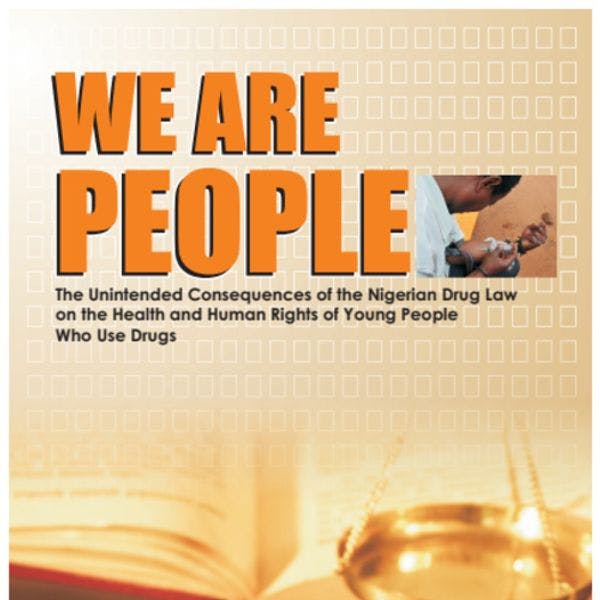We are people: The unintended consequences of the Nigerian drug law on the health and human rights of young people who use drugs
Nigeria the most populous African nation has witnessed a surge in availability and consumption of illicit drugs in recent times. This is partly due to drug trafficking from Latin America and Asian countries through the region to the lucrative European and North American markets. Beyond trafficking, drugs like methamphetamine is now being produced in the country based on the discovery of about six clandestine laboratories between 2012 and 2013. Hence, the goal of eradicating drug from the society seems far away. Also in recent times, the call for drug policy reform globally and in many African countries have continued to gain momentum with the African Union Commission also lending its voice to the process. This is based on the increasing evidence of the failure of current drug control system that relies heavily on supply control and punishment for drug users without any record of reduction in availability and consumption of drugs but many reports of human rights violations linked to enforcing drug laws and policies.
Young people constitute about 60 per cent of Nigeria Population. It is important to assess the country’s drug control efforts and how they has impacted on the human rights, health and development of those who use drugs, especially young people. Data for this report was generated through interviews and consultation with young people who use drugs, drug law enforcement agents, magistrates, civil society organisations and young people in prison asylum.
The report clearly showed Nigeria drug policy has been a reactive one to both internal and external pressures instead of being a proactive tool based on evidence of what works and what does not. There are systemic human rights abuses of young people who use drugs by both law enforcement agents and the society at large. Many of these abuse are unreported and have been 'normalized'. This include arbitrary arrest, prolonged detention, being beaten, getting locked up without food for days, sexual harassment, rape, forced rehabilitation and so on. It was found that there are series of abuses going on within some drug rehabilitation centres including those operated by non-governmental institutions where severe torture is being used ostensibly to make people drug free. Unfortunately, most of these centres are not guided by any standard of practice and are also rarely monitored.
There are also increased reports of injection drug use and HIV risk practices among young people. Regrettably, the public health response is limited due to the criminalisation of drug use. Evidence based programs such as opioid substitution therapy and needle syringe programs are unavailable. Only few programs specifically target this group of people with programs focusing on information sharing. The unintended consequences resulting from the implementation of the Nigerian drug law call for an urgent review, especially for the protection and holistic development of the youth population who have already initiated drug use.
Keep up-to-date with drug policy developments by subscribing to the IDPC Monthly Alert.
